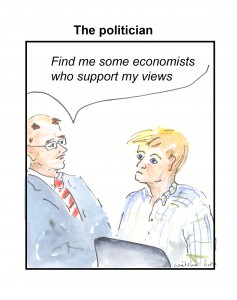[amazon_link id=”1844678644″ target=”_blank” ]Chavs: The Demonization of the Working Class[/amazon_link] by Owen Jones deserves the praise it has earned from other reviewers. It paints a picture of class division in modern Britain that is over-simplified in some ways, but captures an important truth. The big truth is that the worlds of the social classes have separated, and the middle classes and elites have grown more contemptuous – because fearful – of working class people the less contact they have with them.
In my own comfortable suburban milieu this takes the form of supposedly left-wing friends who nevertheless send their children to private schools. London’s state schools add more value than any other schools in the country so the ‘rationale’ for this choice in terms of not wanting to sacrifice one’s children’s education for the sake of one’s own principles is threadbare. I believe the reason is the fear of social contact with other classes. (My children have attended our local comprehensive.)
Jones pins the start of the demonisation of the working class as ‘chavs’ to the economic and political ideology of the Thatcher government. Housing policy seems key. The right-to-buy for council housing was taken up by those families with a bit more money, leaving the poorest in a shrinking stock of council accommodation, which was increasingly earmarked for the most troubled families and isolated from other parts of society. The knot of related problems we are so familiar with consequently developed in these estates – the unemployment, ill-health, low-quality housing, poor schooling, drug abuse, crime. (Lynsey Hanley’s [amazon_link id=”1847087027″ target=”_blank” ]Estates[/amazon_link] is brilliant on this issue.) Jones is equally scathing about New Labour, for acceding to the Thatcher revolution, and its depiction of the working class as something to escape from rather than a cohesive class to be proud of and raise collectively.
He also opened my eyes to just how disdainful and disrespectful is so much comment and language about the working classes. Clearly, I lead a sheltered life by never reading tabloid newspapers. The book is definitely onto something, too, in noting that the politics of race are sometimes deployed to disguise the politics of class – the white working classes can be portrayed as simply anti-immigrant and racist, another reason (for the commentariat of the left) for being disdainful about them.
However, there are some aspects of Jones’s pre-Thatcher perspective that lead him to underplay some of the complexities of class politics in modern Britain. For example, he argues that commentators malign the British working classes as work-shy couch potatoes who just want to claim benefits by comparing them with hard-working immigrants who, far from ‘stealing’ jobs, are doing them because the natives are too idle to bother. Until recently I was a member of the Migration Advisory Committee and spoke to many employers during my five year term about their reasons for preferring immigrant labour; it is a fact that large numbers of young native-born people have never been taught the basics of the workplace – punctuality, politeness, putting in some effort – and are essentially unemployable. This is not to say it is their individual fault. But to trace the reasons, schools are facing a social catastrophe with a portion of their intake. I have heard London teachers talk of the widespread low-level neglect of children who turn up at primary school lacking minimal social and language skills, unwashed, fed on crisps – all of which makes discussion of which kings’ reigns to cover in the national curriculum a bit, well, academic.
It is hard to know where to start addressing these multiple challenges, although clearly housing and education lie at the centre of the complex of problems. Chavs gives the impression of wanting to turn the clock back to the pre-Thatcher era of union power, which wouldn’t be my choice. Still, the book does a great service in calling out the unacceptable demonisation that has accompanied the growth of inequality and the withdrawal of the powerful elites and middle classes from their own society.
[amazon_image id=”1844678644″ link=”true” target=”_blank” size=”medium” ]Chavs: The Demonization of the Working Class[/amazon_image]

